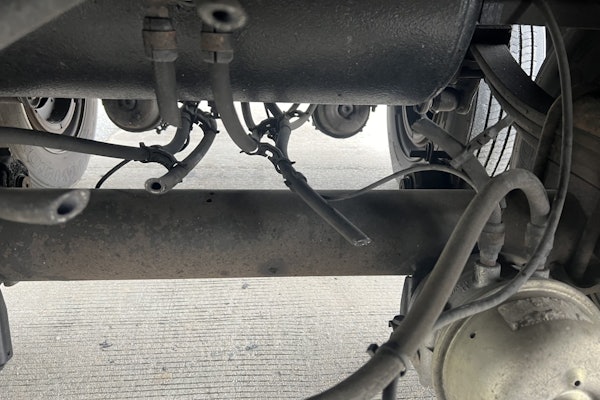Deluge of bad economic news fuels increased symptoms of anxiety and depression
“Sometimes depression can creep in quietly and then you realize, Man, I’m feelin’ pretty depressed,” says Carlos Haeussler, a trucker from Citrus Springs, Fla. “It can feel like a dark cloud hangs over you and a heavy weight is on your head and shoulders. Almost like the weight of the world at times.” When Haeussler is in a state of depression, he says, his desire to drive is very low.
Nearly 10 percent of all people in the United States suffer from depression, and truckers may have an even higher risk than the general population. Risk factors for depression read like a long-haul trucker’s job description: loneliness, job isolation, long hours, lack of control over schedule, limited access to physical and mental health care, lack of respect on the job and separation from friends and family. Add anxiety over worsening economic news, and those prone to depressive disorders may find themselves with more than a small case of the blues.
What is depression?
There are several different types of depression, including the most common, dysthymia, a low to moderate level of depression that may persist for years. The National Institute of Mental Health describes depression as a condition with feelings of sadness or blues that interferes with normal functioning and causes pain for both the person with the disorder and those who care about him or her. Many sufferers never seek help due to lack of information about the condition or feelings of shame or perceived weakness.
Fifty-year-old company driver Kevin Rains of Joplin, Mo., says he endured 25 years of depression before finally talking to his family doctor two years ago about his symptoms. “I went through my daily life just existing,” he says. “I never felt any emotions, not joy, not anger, not discontent, just a flat, empty existence where you don’t care about anything.”
Rains was diagnosed with dysthymia and prescribed the anti-depressant Zoloft. His mood improved, and he’s feeling better than he has in a long time. Still, the stress of life on the road, especially financial worries, can trigger symptoms. Worry and stress related to the economy plague 80 percent of Americans, according to a September 2008 survey by the American Psychological Association (APA), and the Gallup-Healthways poll that measures the country’s “Well-Being Index” reports significant increase in Americans classified as “suffering” due to the recession.
Rains is relieved he finally got a diagnosis and treatment for the depression he’s battled so long. “I just never really talked to my doctor about my symptoms,” he says.
Once you make the decision to seek help, according to the National Institute of Mental Health, you are already on the road to recovery and may experience up to 80 percent improvement after only a few weeks of treatment.
Haeussler doesn’t have an official diagnosis for depression and doesn’t take any medications for its symptoms despite a strong family history of depressive disorders. “I’m just fortunate that my depression (in my opinion) is not severe. There are the obvious things that can trigger depression, such as job stress, family pressure, financial issues and loneliness. But there are days when the sun is shining, and you could be moving right along and out of nowhere it can hit. Like out of left field it hits you, and there’s not much you can do but realize that you are in a state of depression and do your best to cope with it.
For me, I get out of the truck and exercise, take a walk or contact a friend or family member. I do what I have to do to get myself back on track.”
11 Ways to Beat THE Blues
1.Don’t catastrophize
Do you find yourself running through a mental rehearsal of everything that can go wrong following a particular event? Psychologist Anna Maravelas, author of How to Reduce Workplace Conflict and Stress, gives an example: “My brother lost his trucking job. I’ll probably be laid off too. We’ll lose the house. The kids will be homeless and end up on drugs. My marriage will fall apart, and I’ll be alone and destitute.”
She says it’s easy to give into these sorts of thoughts when hearing bad news, especially on the road without anyone around to counter the negative thoughts. However, if you are able to recognize that it’s just a runaway “rehearsal of everything that could go wrong,” so-called “catastrophizing” loses its power.
Maravelas counsels patients to ask themselves, “Is what I’m saying to myself (or dwelling on) helping me reach my goals? Is it keeping me focused on my job and helping me be a better friend, father [or mother] and partner?” If not, substitute either of the following questions: “What’s reasonable and realistic?” and “If my best friend were in this situation, what would I say to him [or her]?” These two questions move our brains from the depression-inducing voice of the critic to the voice of the compassionate witness.
If you find yourself obsessing about the economy, try to stay informed without focusing on things you can’t control. Avoid shock jock radio shows like the plague – or any media forum that exaggerates events and blames people. Choose programs that offer ration









